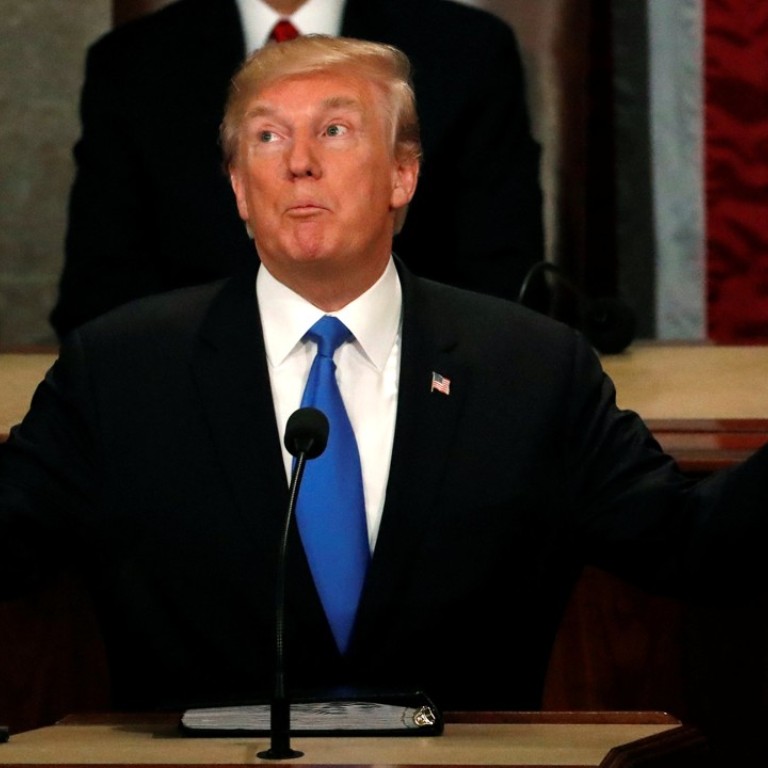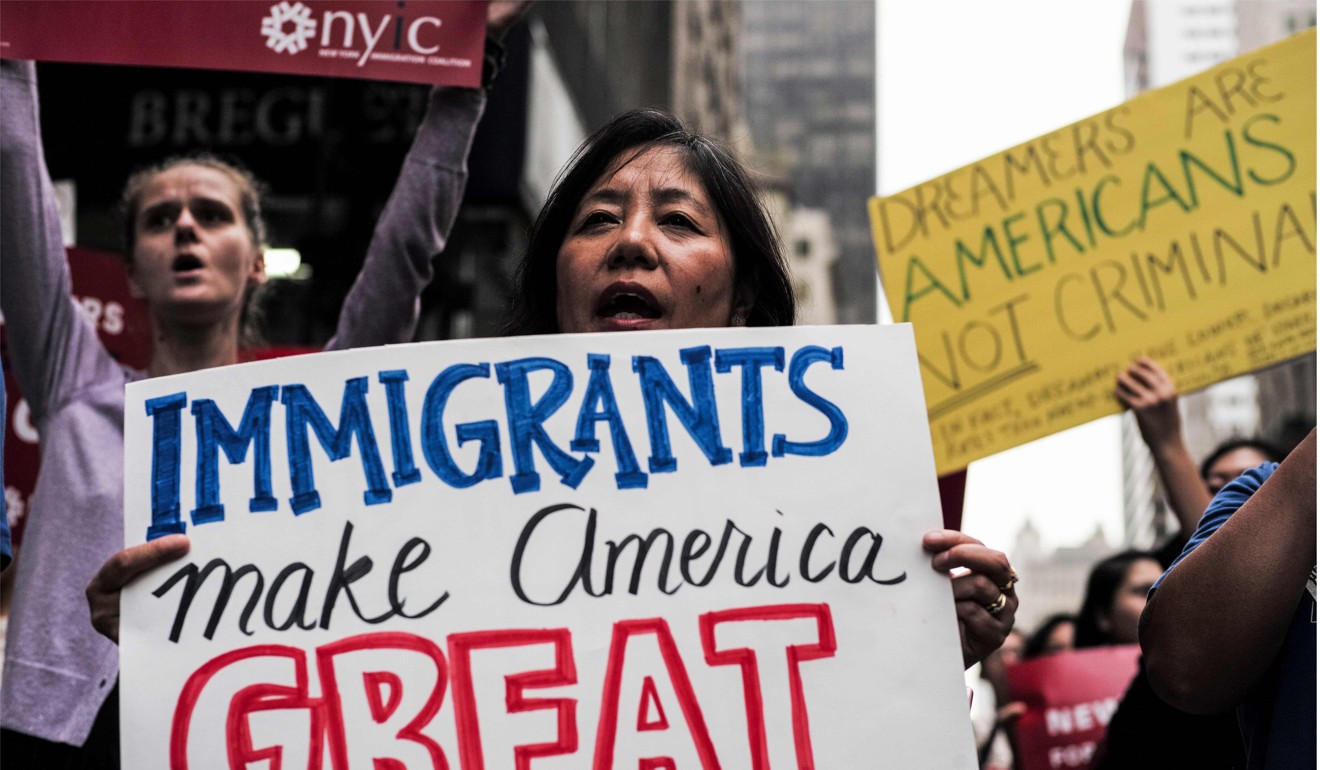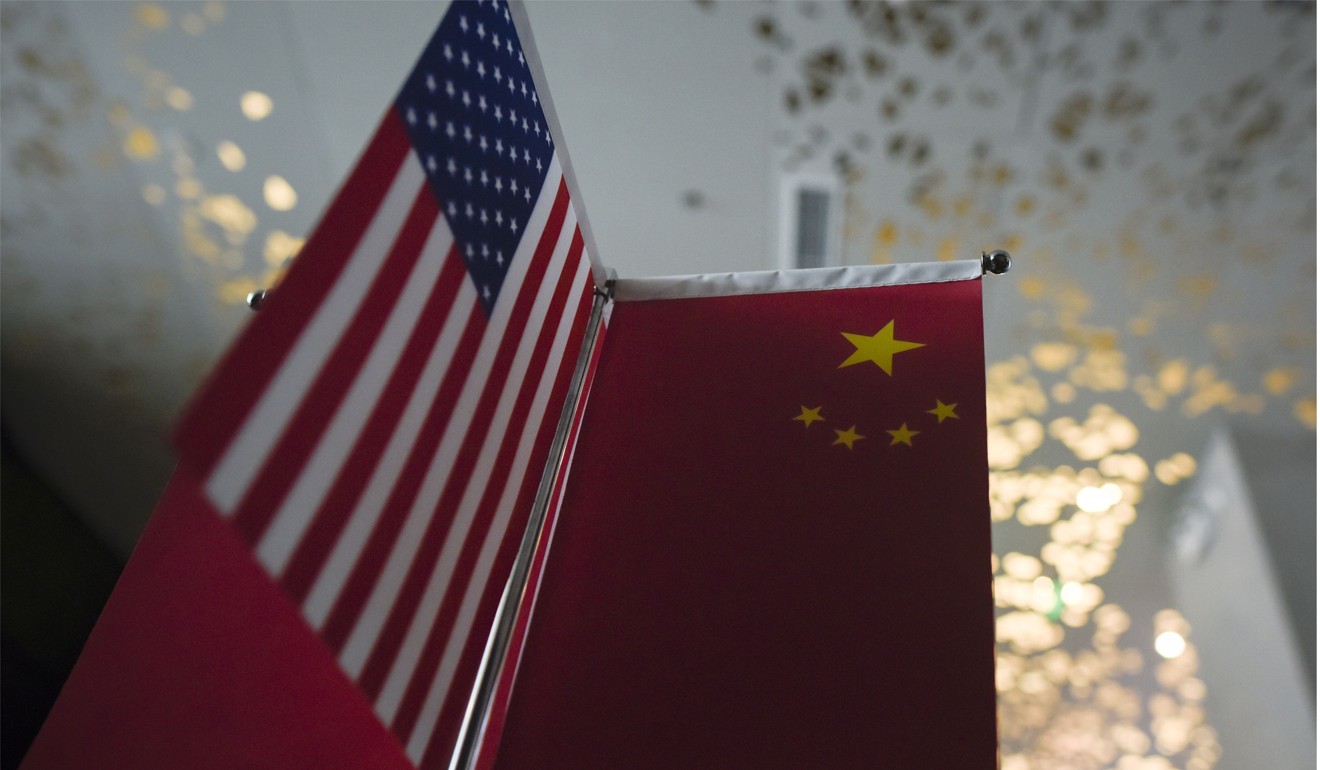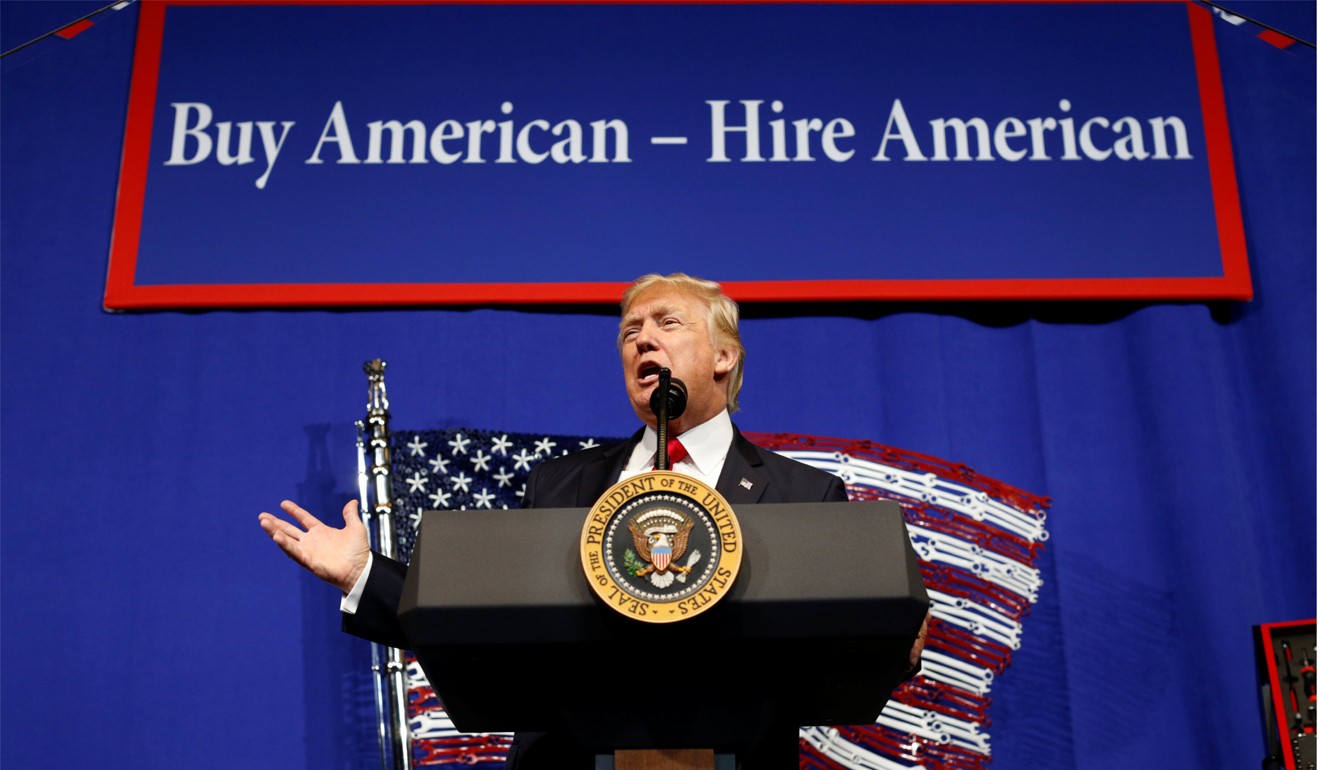
Chinese skilled workers hope Donald Trump’s immigration plan will cut wait for green cards
Proposed reforms and move to ‘merit-based system’ seen as ‘big plus’ for skilled migrants but also a challenge for China in the global battle for talent
Skilled workers could be the big winners from US President Donald Trump’s immigration reforms, experts say, as Chinese waiting to hear about green cards welcomed the proposed changes.
Trump announced in his state-of-the-union address on Tuesday evening US time that he planned to end the US visa lottery system as well as “chain migration”, where immigrants can sponsor relatives to live in the United States.
Rather than the visa lottery system that “randomly hands out green cards without any regard for skill, merit, or the safety of our people”, it was time for the US to move towards a “merit-based immigration system – one that admits people who are skilled, who want to work, who will contribute to our society, and who will love and respect our country”, Trump said in his speech.
He also moved to end “chain migration”, which he described as allowing “a single immigrant [to] bring in virtually unlimited numbers of distant relatives”.

“Under our plan, we focus on the immediate family by limiting sponsorships to spouses and minor children. This vital reform is necessary, not just for our economy, but for our security, and our future,” he said.
Where there is a price, there is always an opportunity. The lottery quota should flow back to skilled workers
“Where there is a price, there is always an opportunity. The lottery quota should flow back to skilled workers,” said John Hu, a Hong Kong-based immigration consultant.
“This is a big plus for skilled migrants. If Trump uses a points-based system, the highest points granted a visa, so it opens more opportunities to skilled migrants.”
Chinese skilled workers, including those from Hong Kong, could benefit from the changes as those with skills would be prioritised in the immigration queue, he said.

The United States issued 35,350 immigrant visas last year for people from mainland China, based on applications made from outside the US, according to US state department data. The number from Hong Kong was 1,128.
They were either people who went through the lengthy application process to join a relative who was already a US citizen or those who were moving to the US for employment.
For some Chinese working and studying in the United States, the proposed changes were a positive move. Marketing manager Gwen Chen, who lives and works in Seattle, along with her husband, said it would mean a shorter wait for a green card.
Chen, who has an MBA from Durham University, said the couple applied for green cards in 2015, a couple of years after they moved to the US from Beijing, but they were still waiting. Her husband is a software engineer at a multinational company.
“A smaller quota for the parents and siblings and low-skilled workers means there will be a bigger quota for people like us, so we’ve got a better chance,” Chen said.
“People who are from smaller countries don’t need to worry about not getting selected ... but if you’re from India or China, all you can do is pray. I heard about an Indian who waited more than a decade to get his green card, and for Chinese it can take five years.”

In general, I would feel less welcome here and would consider alternative long-term plans
Xinyi Ge, who is from Hangzhou and studies at the University of Chicago, would welcome a more merit-based US immigration system if it made it easier to get a work visa. Ge plans to work in consulting after she graduates later this year, but said it was difficult to get an H-1B visa under the current system and it “depends on luck”.
The H-1B is a non-immigrant temporary employment visa for highly skilled foreign professionals who work in areas where there is a shortage of qualified American workers. Since taking office last year, the Trump administration has been cracking down on the scheme.
Ge said she and her friends were concerned about the tightening of US immigration policy, including proposed reforms to the H-1B visa system. “Such changes definitely worry us,” she said. “In general, I would feel less welcome here and would consider alternative long-term plans.”
More than 90 per cent of H-1B applications processed in fiscal 2017 were approved, but that rate dipped below 85 per cent in the first two months of fiscal 2018, according to US state department data.
While the proposed changes were seen as positive by people wanting to live and work in the US, they could pose a new challenge for China as it tries to lure more highly skilled foreign workers.
Trump’s new policy also mirrors the reality of fierce competition for skilled talent worldwide, and this could be a challenge to China
“Trump’s new policy also mirrors the reality of fierce competition for skilled talent worldwide, and this could be a challenge to China,” said Wang Huiyao, founder and president of Beijing-based think tank the Centre for China and Globalisation.
“I think China needs to introduce more preferential policies for skilled workers as soon as possible.”
He added that the policy changes outlined by Trump would be very appealing for professionals around the world.
Hu, the Hong Kong-based consultant, said the proposed US immigration reforms were similar to the systems in Canada and Australia, where applicants are vetted according to their skills, experience, contribution to the economy and overall need for such workers.
“Trump is right in the sense that now they have to be more selective about whether people can come into the country,” he said. “What Trump has done is set the US on the right track, one that is in line with his ‘America First’ policy.”
Additional reporting by Laura Zhou and Sarah Zheng


